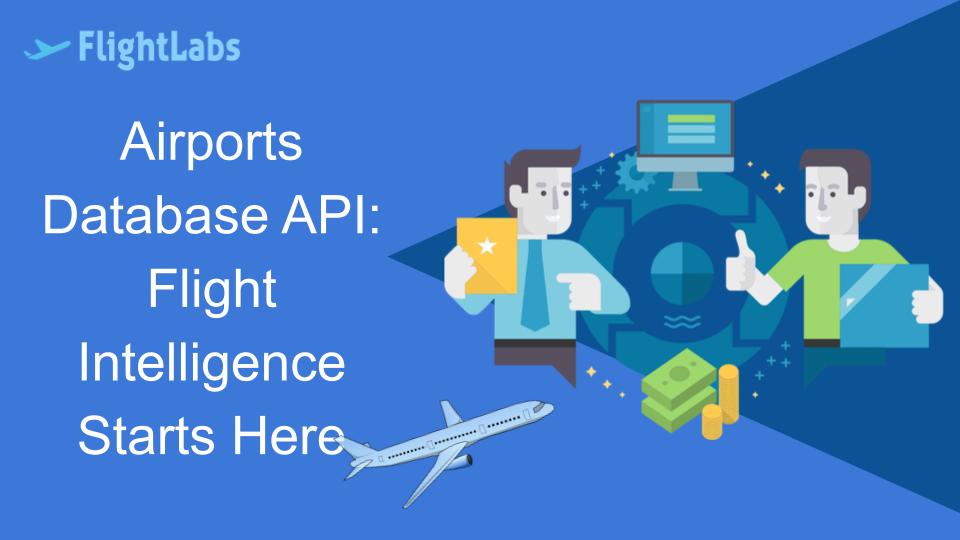Airports Database API: Flight Intelligence Starts Here

In today's dynamic aviation landscape, flight intelligence plays a pivotal role in shaping operational strategies and enhancing passenger experiences. The evolution of airport data management has seen a remarkable shift from manual processes to sophisticated data analytics frameworks. This transformation has empowered airlines and airports to harness real-time insights, optimize resource allocation, and improve overall efficiency.
Understanding Airports Database API: What is an Airports Database API? How Does it Work? Benefits of Using an Airports Database API
An Airports Database API is a robust tool that provides access to a wealth of airport data, including airport codes, flight schedules, and real-time flight information. It works by aggregating data from various sources, such as airlines API, aviation data API, and flight tracking API, to deliver comprehensive and up-to-date insights. The benefits of using an Airports Database API are immense, from enhancing flight status tracker API capabilities to optimizing aircraft data API integration and improving airline routes API efficiency.

Get Staryed With FlightLabs
The key features of an Airports Database API are its ability to provide real-time flight information, offering a comprehensive view of airport data including airport codes and schedules, and seamlessly integrating with existing systems such as airline API and aviation data API. This API enhances air flight status tracker API capabilities, streamlines aircraft data API access, and optimizes airline routes API management for efficient operations.
Use Cases and Applications
The use cases and applications of FlightLabs span across various industries. In the airlines and aviation industry, this API facilitates efficient aircraft data API management and enhances airline routes API planning. In the travel and tourism sector, it enables seamless integration with API for Search Rent-A-Cars and provides real-time flight information for travelers. For airport management and operations, the API streamlines airport schedule API handling and improves overall efficiency.
Advantages of Using FlightLabs
Using FlightLabs offers several advantages in the aviation sector. It enables enhanced decision-making by providing real-time insights and predictive analysis through features like aircraft data API integration. The API contributes to improved operational efficiency by streamlining processes such as airport schedule API management. Moreover, it promotes cost-effectiveness and resource optimization by eliminating redundancies and maximizing the use of available data sources.
Future Trends and Developments
The future of flight intelligence is intertwined with advancements in AI and machine learning, empowering FlightLabs to deliver more precise predictions and insights. As data sources expand, integration options diversify, enabling seamless connectivity with aircraft data API and airline routes API for enhanced decision-making. User experience enhancements and accessibility improvements further elevate the utility and effectiveness of these technologies in the aviation industry.

Case Studies and Success Stories: Airlines Implementing FlightLabs Impact on Flight Management and Passenger Experience
Several airlines have successfully implemented FlightLabs, witnessing a significant impact on flight management and passenger experience. By leveraging features like aircraft data API and flight status tracker API, these airlines have streamlined operations, reduced delays, and enhanced overall service quality, leading to improved satisfaction among passengers and stakeholders alike.
Conclusion
In conclusion, the FlightLabs offers a myriad of benefits, including real-time flight information and enhanced aircraft data management. Looking ahead, the future outlook presents exciting opportunities for further integration and development in the aviation industry. A call to action is made for businesses to embrace this technology, leveraging its capabilities for improved efficiency and customer satisfaction.